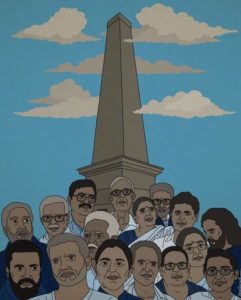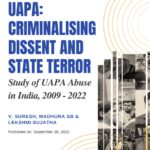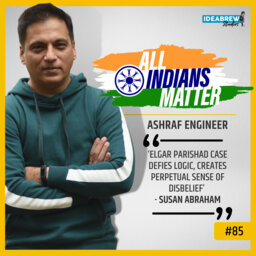India: Authorities must immediately repeal repressive new criminal laws

Amensty.org / by Amnesty International
As three new criminal laws, Bharatiya Nyaya Sanhita (BNS), Bharatiya Nagarik Suraksha Sanhita (BNSS) and the Bharatiya Sakshya Adhinayam (BSA), come into effect today replacing three British-era laws in India, Aakar Patel, chair of board at Amnesty International India said:
“The provisions of the amendments to and overhaul of the criminal laws in India would have debilitating consequences on the effective realization of the rights to freedom of expression, association, peaceful assembly, and fair trial.”
Read full statement
Also read/watch:
▪ India: Arrests, Raids Target Critics of Government (Amnesty International / Oct 2023)
▪ AI Report: India’s exploitation of terrorism financing assessments to target the civil society (Amnesty.org / Sep 2023)
▪ Incriminating document found in Fr. Stan Swamy’s computer ‘planted’; similar tampering found in other Bhima Koregaon accused: Reports American forensic firm (The Leaflet / Dec 2022)
▪ Fabricating Evidence Against Life and Liberty: Tampering with Fr. Stan Swamy’s computer and its implications for Bhima Koregaon case (Mumbai Rises to Save Democracy / Dec 2022)
▪ Leaked Data Shows Surveillance Net in Elgar Parishad Case May Have Crossed a Line (The Wire / July 2021)













